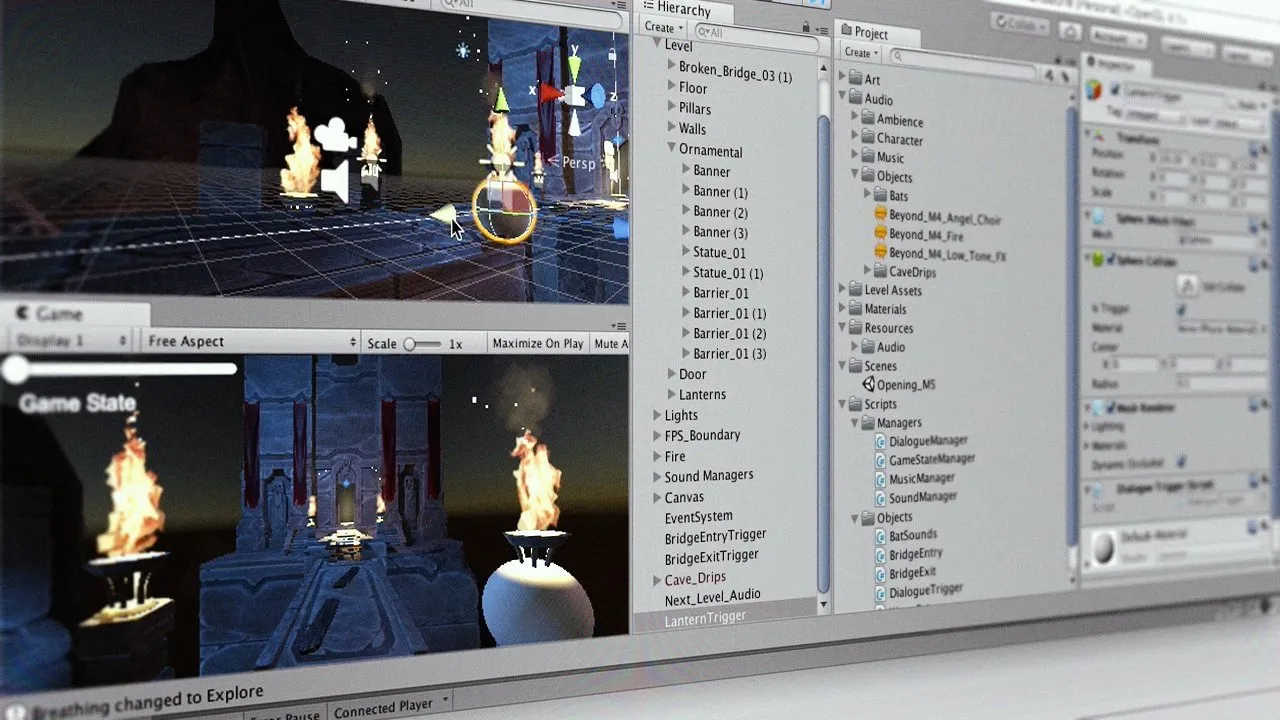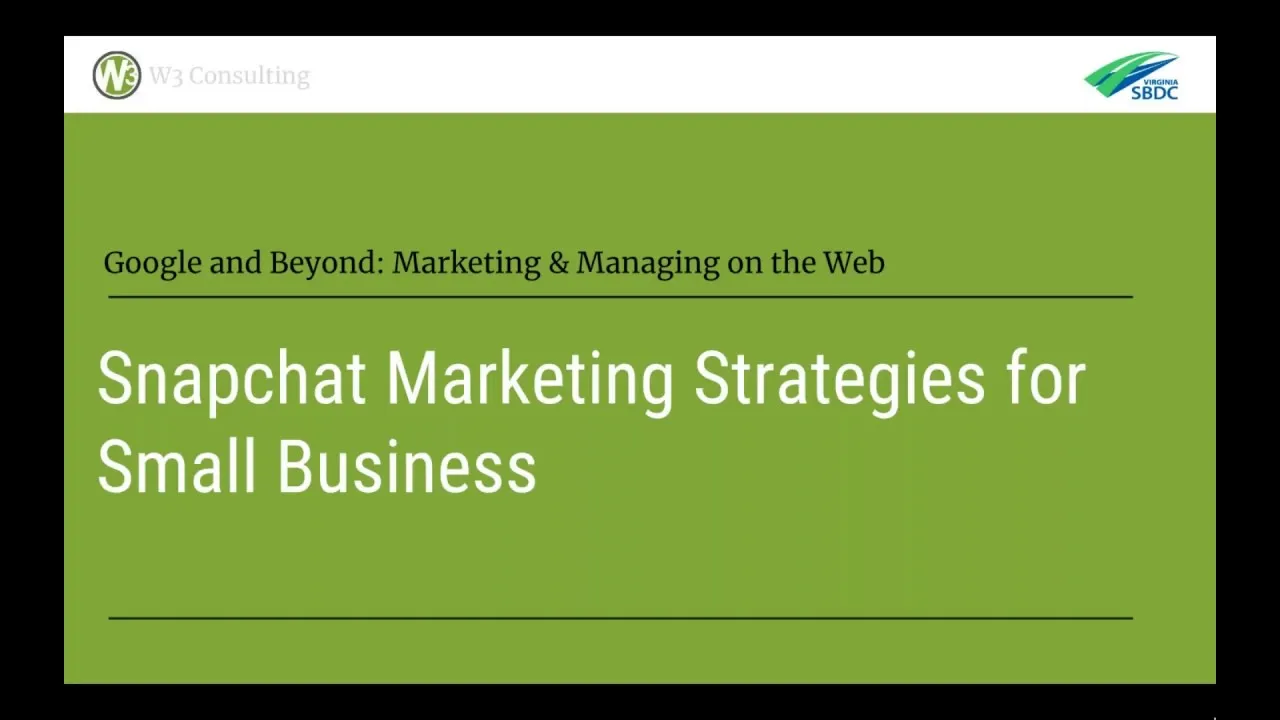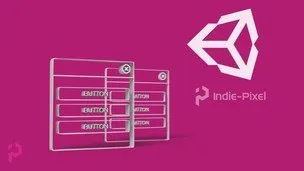
Beyond the Basics - Audio Tips and Tricks in Unity 
Gain an introduction to Beyond the Basics - Audio Tips and Tricks in Unity ▼
ADVERTISEMENT
Course Feature
![]() Cost:
Cost:
Free Trial
![]() Provider:
Provider:
Pluralsight
![]() Certificate:
Certificate:
Paid Certification
![]() Language:
Language:
English
![]() Start Date:
Start Date:
On-Demand
Course Overview
❗The content presented here is sourced directly from Pluralsight platform. For comprehensive course details, including enrollment information, simply click on the 'Go to class' link on our website.
Updated in [March 06th, 2023]
This course, Beyond the Basics – Audio Tips and Tricks in Unity, provides an in-depth look at how to create powerful audio techniques to extend Unity projects. It covers topics such as creating playlists, generating sounds in real-time, prepping audio in a DAW, re-usable concepts that transfer to all types of game genres, and implementation approaches that allow for the expansion and leverage of audio tools in Unity. By the end of the course, participants will have a better understanding of sound design and interactivity within their Unity projects.
[Applications]
Upon completion of this course, Beyond the Basics – Audio Tips and Tricks in Unity, learners will be able to apply concepts of sound design and interactivity within their Unity projects. Learners will be able to create playlists, generate sounds in real-time, and prepping audio in a DAW. Additionally, learners will be able to create dialogue stitching for more believability and a master audio mix strategy and audio menu system.
[Career Paths]
1. Audio Engineer: Audio engineers are responsible for recording, mixing, and editing audio for a variety of media, including music, film, television, and video games. They use specialized equipment to capture and manipulate sound, and must have a strong understanding of audio technology and production techniques. The demand for audio engineers is expected to grow as the entertainment industry continues to expand.
2. Sound Designer: Sound designers create sound effects and music for video games, films, and other media. They use a variety of tools and techniques to create soundscapes that enhance the overall experience of the game or film. Sound designers must have a strong understanding of audio technology and production techniques, as well as a creative ear for creating unique sound effects.
3. Music Composer: Music composers create original music for video games, films, and other media. They must have a strong understanding of music theory and composition, as well as a creative ear for creating unique musical pieces. Music composers must also be able to work with a variety of audio software and hardware to create and manipulate sound.
4. Audio Programmer: Audio programmers are responsible for creating and implementing audio systems for video games and other interactive media. They must have a strong understanding of audio technology and production techniques, as well as a strong knowledge of programming languages such as C# and C++. Audio programmers must also be able to work with a variety of audio software and hardware to create and manipulate sound.
[Education Paths]
1. Bachelor of Science in Audio Engineering: This degree program focuses on the technical aspects of audio production, such as sound recording, mixing, and mastering. It also covers topics such as acoustics, digital signal processing, and audio engineering principles. This degree is ideal for those interested in pursuing a career in audio engineering, sound design, or music production.
2. Bachelor of Arts in Music Technology: This degree program focuses on the creative aspects of music production, such as composition, arranging, and sound design. It also covers topics such as music theory, music history, and music technology. This degree is ideal for those interested in pursuing a career in music production, sound design, or audio engineering.
3. Master of Science in Audio Technology: This degree program focuses on the advanced aspects of audio production, such as sound synthesis, audio programming, and audio engineering. It also covers topics such as acoustics, digital signal processing, and audio engineering principles. This degree is ideal for those interested in pursuing a career in audio engineering, sound design, or music production.
4. Master of Arts in Music Technology: This degree program focuses on the creative aspects of music production, such as composition, arranging, and sound design. It also covers topics such as music theory, music history, and music technology. This degree is ideal for those interested in pursuing a career in music production, sound design, or audio engineering.
The development trends for these degree paths are focused on the use of technology in audio production. This includes the use of digital audio workstations, virtual instruments, and audio plugins. Additionally, the use of scripting and programming languages such as C# and Python are becoming increasingly important in the audio production process. As technology continues to evolve, so too will the need for audio professionals with a strong understanding of both the creative and technical aspects of audio production.
Course Provider

Provider Pluralsight's Stats at AZClass
Pluralsight ranked 16th on the Best Medium Workplaces List.
Pluralsight ranked 20th on the Forbes Cloud 100 list of the top 100 private cloud companies in the world.
Pluralsight Ranked on the Best Workplaces for Women List for the second consecutive year.
AZ Class hope that this free trial Pluralsight course can help your Unity skills no matter in career or in further education. Even if you are only slightly interested, you can take Beyond the Basics - Audio Tips and Tricks in Unity course with confidence!
Discussion and Reviews
0.0 (Based on 0 reviews)
Explore Similar Online Courses

Snapchat Marketing Strategies for Small Business

Exploring the Landscape of Antibiotic Resistance in Microbiomes

Python for Informatics: Exploring Information

Social Network Analysis

Introduction to Systematic Review and Meta-Analysis

The Analytics Edge

DCO042 - Python For Informatics

Causal Diagrams: Draw Your Assumptions Before Your Conclusions

Whole genome sequencing of bacterial genomes - tools and applications

Learn Unity 3D and C# By Making a Full Game (2023)

Asset Creation and Management

Unity 3D - Create a Reusable UI System
 Related Categories
Related Categories
 Popular Providers
Popular Providers
Quiz
 Submitted Sucessfully
Submitted Sucessfully
1. What is the main focus of this course?
2. What is the first topic discussed in this course?
3. What is the last topic discussed in this course?


Start your review of Beyond the Basics - Audio Tips and Tricks in Unity